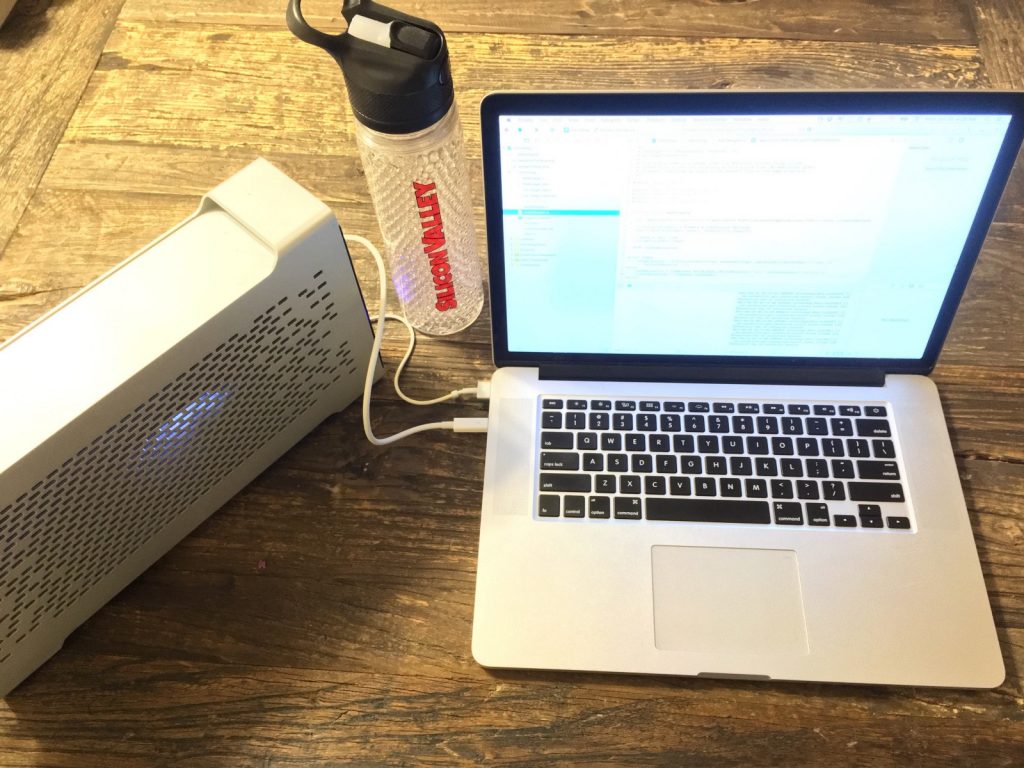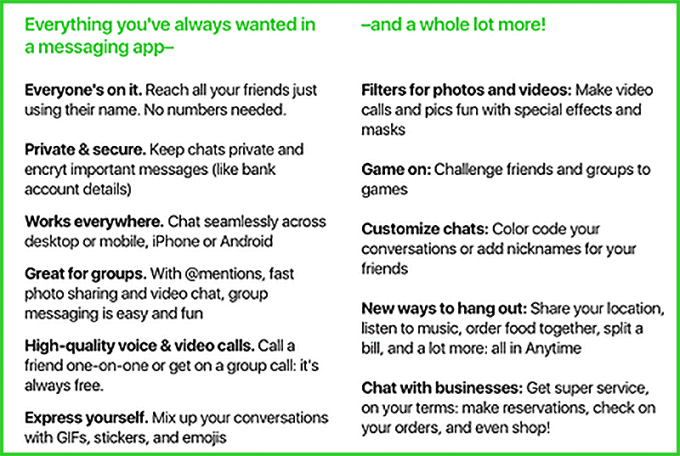Deep Dog
[avatar user=”malm” size=”small” align=”left” link=”file” /]
This entertaining explanation of how to build the Not Hotdog detector from the TV Silicon Valley show using mobile Tensorflow, Keras and ReactNative illustrates perfectly the ongoing democratisation of deep learning. The app uses a pre-built model so all the deep learning is done entirely on a phone:
“All AI work is powered 100% by the user’s device, and images are processed without ever leaving their phone. This provides users with a snappier experience (no round trip to the cloud), offline availability, and better privacy. This also allows us to run the app at a cost of $0, even under the load of a million users, providing significant savings compared to traditional cloud-based AI approaches. … The app was developed in-house by the show, by a single developer, running on a single laptop & attached GPU, using hand-curated data. In that respect, it may provide a sense of what can be achieved today, with a limited amount of time & resources, by non-technical companies, individual developers, and hobbyists alike. In that spirit, this article attempts to give a detailed overview of steps involved to help others build their own apps.”
Inevitably TensorFlow is the choice for mobile poets:
This Keras blog post on the future of deep learning suggests it will move closer to general purpose human capability:
Models will be more like programs, and will have capabilities that go far beyond the continuous geometric transformations of the input data that we currently work with. These programs will arguably be much closer to the abstract mental models that humans maintain about their surroundings and themselves, and they will be capable of stronger generalization due to their rich algorithmic nature.
Yet at the same time, one is forced to ask what it will mean in terms of consciousness implications given the evidence that our brains hallucinate our reality:
Amazon
Ben Evans on Amazon Video and Netflix why content isn’t king any more – mobile tech is and the companies that have profited from it are bigger than the content industry:
The smartphone is the sun and everything else orbits it. Internet advertising will be bigger than TV advertising this year, and Apple’s revenue is larger than the entire global pay TV industry. This is also why tech companies are even thinking about commissioning their own premium shows today – they are now so big that the budgets involved in buying or creating TV look a lot less daunting than they once did. A recurring story in the past was for a leading tech company to go to Hollywood, announce its intention to buy lots of stuff, and then turn pale at the first rate card it was shown and say “wow – that’s really expensive!”. They have the money now, not from conquering TV but from creating something bigger.
Amazon messaging envy in the form of a messaging app called Anytime.
Meanwhile one message coming through loud and clear is that Amazon is hiring lots of development staff including in London where development staff numbers are set to double this year.
Blockchain
Residents of The Swiss City Of Zug to have Blockchain-based ID:
GPUs are flooding the market as Ethereum’s price crashes below $150 and this lively Reddit thread ensues.
A blockchain implementation in 50 lines of Python. This code will create 20 blocks and add them to a blockchain:
import hashlib as hasher
import datetime as date
# Define what a Snakecoin block is
class Block:
def __init__(self, index, timestamp, data, previous_hash):
self.index = index
self.timestamp = timestamp
self.data = data
self.previous_hash = previous_hash
self.hash = self.hash_block()
def hash_block(self):
sha = hasher.sha256()
sha.update(str(self.index) + str(self.timestamp) +
str(self.data) + str(self.previous_hash))
return sha.hexdigest()
# Generate genesis block
def create_genesis_block():
# Manually construct a block with
# index zero and arbitrary previous hash
return Block(0, date.datetime.now(), "Genesis Block", "0")
# Generate all later blocks in the blockchain
def next_block(last_block):
this_index = last_block.index + 1
this_timestamp = date.datetime.now()
this_data = "Hey! I'm block " + str(this_index)
this_hash = last_block.hash
return Block(this_index, this_timestamp, this_data, this_hash)
# Create the blockchain and add the genesis block
blockchain = [create_genesis_block()]
previous_block = blockchain[0]
# How many blocks should we add to the chain
# after the genesis block
num_of_blocks_to_add = 20
# Add blocks to the chain
for i in range(0, num_of_blocks_to_add):
block_to_add = next_block(previous_block)
blockchain.append(block_to_add)
previous_block = block_to_add
# Tell everyone about it!
print("Block #{} has been added to the blockchain!".format(block_to_add.index))
print("Hash: {}\n".format(block_to_add.hash))
Services
How Silicon Valley is facing new walls in China as seen through the lens of LinkedIn:
“It may not be so much that LinkedIn is having trouble in China because they’re a foreign company,” said Mark Natkin, founder of tech research firm Marbridge Consulting. “It’s more that they’re having trouble in China because this is not the model people want to use here.” Most use Tencent messaging services like WeChat or QQ — another Tencent messaging service originally built for desktop computers — to connect for business instead, he added.
A/B testing courtesy of Duolingo’s master growth hacker.
How to turn off your push notifications. All of them.
Mobile
The worlds’ first battery-free phone:
According to the FT, Vertu may be dead, but it was a remarkable company with many fascinating secrets including this one:
“For reasons never understood, Leicester, a provincial city in the English east midlands, was the UK sales hotspot.
All things must end. For all too many it happens with a quiet whimper.
Software Development
The myriad possibilities available to anyone looking to get a leg up with parsing using Python.
Management and Leadership
good leaders are like master gardeners — fostering the right environment for a team is critical to success.
The importance of scaling yourself as a leader.
One of the key lessons for all leaders is that learned helplessness at work is absolutely pernicious. It’s imperative to pay attention to how it arises and avoid it spreading:
It doesn’t take long for behavior from even a small group of people to start creating a toxic work environment. And as Robert Sutton asserts in his best-selling book, The No-Asshole Rule, when that behavior is tolerated, it will spread.
As it spreads, it creates the perfect storm to feel helpless. Previously engaged, happy, hard-working employees will find it harder and harder to do their job. At some point they’ll give up, whether that means going through the motions to collect a paycheck, or leaving your company.
The importance of side projects.
Politics
Following on from the key theme of the last newsletter, Neoliberalism has conned us into fighting climate change as individuals rather than collectively still echoing Thatcher’s still remarkable assertion that “there’s no such thing as society, there are only individuals.”
Brexit won’t help Britain fight the rise of the robots and we ignore the direction of travel of technological unemployment at our peril:
The third industrial revolution will replace human beings with machines on an unimagined scale. This will create a long, global deflation. But the pain of this deflation will not be distributed evenly. The worst place to live will be a country with low wages, low skills and a trade deficit, because these will act as magnets for economic pain.


